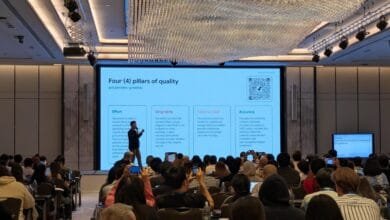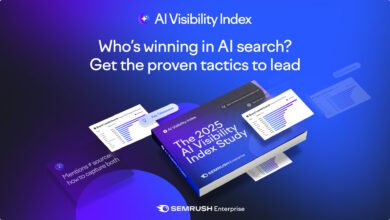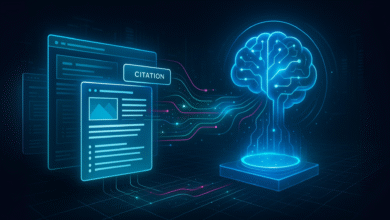Topic: structured data
-

How Structured Data Boosts Your AI Snippets and Visibility
Modern search engines use AI to generate answers, making structured data essential for visibility as unoptimized websites risk being overlooked by AI tools. Structured data acts as a reliable scaffold for AI, improving the consistency and accuracy of generated snippets, as shown in experiments wi...
Read More » -

Unlock AI Search Visibility with Structured Data
The digital information landscape is shifting due to AI platforms, requiring marketers to adapt content strategies for machine consumption and prioritize structured data over traditional SEO. Structured data provides essential context for AI systems, improving content interpretation, reducing hal...
Read More » -

Google Ends Reporting on Key Structured Data Types
Google has stopped reporting on six structured data types, including Course Info and Vehicle Listing, to prioritize more relevant content features. This change affects tools like Search Console and the Rich Result Test, with data removal from the API by December 2025. The removal aims to streamli...
Read More » -

Unlock SEO Power: How NLWeb Makes Schema Your Top Asset
The digital landscape is shifting towards a dynamic, queryable knowledge ecosystem, with structured data becoming foundational for AI readiness and long-term visibility, as exemplified by Microsoft's open-source NLWeb project. NLWeb transforms websites into conversational AI applications by using...
Read More » -

Google Urges Sites: Stick to One Review Target
Google has updated its guidance to require a single, unambiguous target for each review or aggregate rating in structured data, preventing confusion for search algorithms. This directive aims to establish a clear one-to-one relationship between reviews and the specific products, services, or busi...
Read More » -

Google Removes Practice Problem Data from Search
Google is removing practice problem structured data from search results in January to streamline the search experience and phase out underused features. The change affects Search Console reporting and tools, with a transition period before complete discontinuation, while Dataset and Book actions ...
Read More » -

Fundamental Secures $255M Series A to Revolutionize Big Data Analysis
Fundamental has launched Nexus, a new type of AI foundation model called a Large Tabular Model (LTM) specifically designed to analyze structured data like spreadsheets, unlike standard LLMs that struggle with this format. The company secured $255 million in funding, anchored by a $225 million Ser...
Read More » -

Google Cuts Search Features: Practice Problems, Nutrition & More
Google is removing lesser-used search features and structured data types to simplify search pages and improve result speed, continuing efforts from previous cuts. Specific examples of features being eliminated include the "Today’s Doodle" box, nutrition facts, and local events, though the full li...
Read More » -

AI's Local Search Revolution: What Your Business Must Do
AI is now the core driver of local search, acting as a zero-click decision layer that directly connects users to businesses, making algorithmic visibility more critical than traditional rankings. Businesses must prioritize impeccable structured data, accurate listings, and genuine reviews to be c...
Read More » -

Industries Adapting to Answer-Driven Search
The shift from traditional search results to AI-generated direct answers is forcing brands to adopt Answer Engine Optimization (AEO), focusing on content structure, clarity, and credibility to ensure visibility. Different industries face unique AEO challenges: retail must optimize structured data...
Read More » -

Google Simplifies Shipping Policies with New Structured Data
Google has introduced structured data markup for shipping policies, allowing ecommerce sites to display delivery costs and transit times directly in search results and knowledge panels. The markup enables merchants to define shipping rules based on factors like product weight, order value, or des...
Read More » -

Track Google Shipping & Returns in Search Console
Google now allows merchants to submit shipping and return policy information directly via Google Search Console, removing the need for a Google Merchant Center account and enabling e-commerce sites to display these details in search results. Merchants can choose between configuring policies in Se...
Read More » -

Your Content Strategy Failed. Here's What to Do Next.
The digital landscape has shifted, requiring a new approach to content as the web built for humans is hostile to machines, making traditional strategies obsolete. AI systems process information differently, stripping away creative elements to focus on factual content, leading to misrepresentation...
Read More » -

AI Agents: The 2026 Marketing Revolution
Agentic AI represents a new type of autonomous customer, executing purchases and requiring marketers to adapt by making product data structured and accessible for these systems. The consumer journey is being reshaped, demanding brands be both human-trusted and AI-interpretable, with customer serv...
Read More » -

Fix Common Magento SEO Issues: A Technical Guide
Magento 2 (Adobe Commerce) requires advanced technical SEO beyond basic optimizations, focusing on Core Web Vitals, mobile-first indexing, and AI-driven search readiness to achieve strong organic performance. Key technical foundations for success include robust hosting, effective caching, minimiz...
Read More » -

Master AI Search Strategy: A Modern Marketing Guide
Modern search prioritizes clarity and precision for AI systems over keywords, requiring content to be optimized for understanding and citation by large language models. An effective AI search strategy focuses on three technical elements: entities, schema, and structured data, to make content mach...
Read More » -

Agentic AI for SEO: A Leader's Playbook
The digital search landscape is evolving from keyword-based queries to conversational interactions, where AI systems understand user intent and provide direct solutions, making influence within AI as important as traditional search rankings. Agentic AI is reshaping brand discovery and evaluation ...
Read More » -

Why Our PPC Agency Finally Embraced SEO
The agency transitioned from a PPC-only approach to integrating SEO, recognizing the need for a blended strategy due to AI's impact on search behavior. AI-powered tools like ChatGPT and Google's AI Overviews highlighted the importance of technical SEO, structured data, and machine-readable signal...
Read More » -

Master AI Search: Your Enterprise Visibility Blueprint
The rise of generative AI is fundamentally changing search, shifting from keyword-based results to AI-synthesized answers, which requires brands to become authoritative sources that AI systems reference. To be discovered by AI, content must be technically sound, genuinely helpful, and optimized t...
Read More » -

Master AI-Era SEO for Regulated Industries: 3 Key Pillars
AI-driven search requires a holistic strategy for regulated industries, where a brand's reputation is shaped by its entire digital footprint, making trust and cross-channel authority essential for compliance. Effective SEO in this era rests on three pillars: creating expert-reviewed, compliant co...
Read More » -

90-Day SEO Playbook: Boost AI Search Visibility
SEO strategy must evolve to secure visibility within AI-generated summaries, requiring a clear playbook and structured content for AI discovery. Effective adaptation involves defining core AI search topics, creating AI-friendly content with clear answers and structured data, and strengthening E-E...
Read More » -

SEO to GEO: Marketing Leaders' Guide to AI Search Visibility
The rise of AI Overviews is redirecting search traffic, making visibility within AI-generated answers more valuable than traditional high page rankings. Generative Engine Optimization (GEO) shifts focus from optimizing web pages to strengthening digital signals around key entities like your brand...
Read More » -

AI Shopping, GPT-5.1 & EU's Google Crackdown
Search engines like Google are evolving from information retrieval to directly managing transactions and content discovery, fundamentally altering how businesses achieve online visibility. Google's new AI-powered shopping capabilities handle product comparisons and purchases, bypassing merchant w...
Read More » -

SEO in 2026: Where Discipline Meets Results
SEO success in 2026 requires a balanced strategy that integrates short-term wins, long-term investments, and ongoing maintenance to build resilience and lasting results. Short-term tactics like structured data markup and the query fan-out method provide quick visibility and stakeholder trust but ...
Read More » -

Why Global Authority Fails: The E-E-A-T Gap Explained
A strong online presence requires building genuine local trust and authority, not just relying on a global brand name, as search engines prioritize region-specific E-E-A-T signals over international reputation. Global brands often fail in local markets because their content lacks local relevance,...
Read More » -

Google Search Central APAC 2025: Key Insights from Day 3
Google Search Central APAC 2025 highlighted query interpretation techniques, including segmentation for languages like Chinese and contextual synonyms derived from user behavior to refine search results. High-quality content standards focus on people-first principles, originality, expertise, and ...
Read More » -

Get Your C-Suite Ready for the Agentic Web
The digital landscape is evolving as AI reshapes user interactions, requiring brands to cater to both human visitors and AI systems, which necessitates a fundamental rethink of marketing and technology strategies. Traditional SEO tactics are becoming less effective as AI-generated summaries and t...
Read More » -

AI Search: The New Brand Visibility Battlefield
The rise of AI answer engines like ChatGPT is driving a shift from traditional SEO to Generative Engine Optimization (GEO), a new discipline focused on securing accurate brand representation in AI-generated responses. Brands are prioritizing in-house GEO expertise and investing in high-quality, t...
Read More » -

Craft a Winning Content Strategy for 2026
Modern content strategy must bridge traditional SEO and generative engine optimization, focusing on audience insight, platform interplay, and a distinctive brand voice to create genuinely useful content that stands out in an AI-driven landscape. Content must prioritize quality, user needs, and E-...
Read More » -

Agentic Commerce: Essential SEO Strategies for ACP & UCP
The digital landscape is splitting into an "agentic web," where AI agents autonomously conduct purchases, creating a new field called **agentic commerce** that requires businesses to optimize for both human users and AI agents. Major tech firms are accelerating this shift with competing open stan...
Read More » -

2026 Search & Discovery: 6 Must-Knows for Marketers
The rise of conversational AI is fundamentally shifting consumer search and product discovery away from traditional search engines, requiring marketers to optimize for AI-generated recommendations and structured data. AI assistants act as gatekeepers in discovery, making brand visibility dependen...
Read More » -

Multi-Location Website Redesign: Protect Your Traffic
A website redesign for multi-location businesses must prioritize local SEO to protect rankings and visibility, as localized content can significantly boost performance and prevent traffic loss. Conducting a thorough technical SEO audit before launch is essential to preserve SEO value, addressing ...
Read More » -

Master AI Search: A 3-Level Content Framework
Google's FastSearch AI system uses lighter ranking signals and focuses on semantic clarity through RankEmbed, prioritizing content that matches user query meaning over traditional authority signals. Building a solid content architecture with clear siloing and internal linking helps establish topi...
Read More » -

Your Ultimate GEO Content Audit Template (Free Download)
A GEO content audit is a strategic evolution of SEO, focusing on making content authoritative and citable for AI models and direct answer engines rather than just ranking high on search engine results pages. The audit process involves creating a detailed content inventory, evaluating pages for "c...
Read More » -

AI Shopping Discovery: The New Rules for Product Pages
Conversational AI is shifting product discovery from simple keyword searches to **task-based dialogues**, requiring brands to provide rich, contextual product details to match complex user needs. To be visible in AI search, product pages must act as comprehensive decision-support documents, answe...
Read More » -

Stand Out in ChatGPT & Google AI Overviews
To be prioritized by AI platforms like ChatGPT, brands must focus on establishing authority, technical precision, and valuable content that demonstrates expertise and trustworthiness (E-A-T). A strong SEO foundation, including keyword optimization for conversational queries and implementing struc...
Read More » -

Design for Humans and AI: Your Next Customer Is an Agent
The foundational assumption of customer journey design is shifting from a purely human-centric model to a dual-track system, where journeys must be designed for both emotional human decision-makers and logical AI agents that act as gatekeepers. AI agents operate on structured data and clear rules...
Read More » -

Google's Mueller: LLM-Only Markdown Pages Unnecessary
Google's John Mueller states that creating separate Markdown or JSON pages for LLMs is unnecessary, as they can effectively parse standard HTML web pages. Structured data is important only when AI platforms explicitly request specific formats, such as JSON schemas for product listings in tools li...
Read More » -

Master Brand Authority & E-E-A-T in the AI Search Era
AI-generated answers are transforming search platforms by providing synthesized responses that capture user attention and influence information discovery, often bypassing traditional search results. Trust and E-E-A-T (Experience, Expertise, Authoritativeness, Trustworthiness) are now critical for...
Read More » -

Is HTML Dying? The Rise of AIDI and the Web's Future
The web's architecture was designed for human interpretation, not for AI, which may lead to profound changes in how information is delivered and consumed as AI agents evolve. AI assistants can provide quick, relevant comparisons and insights, such as product differences, that are often difficult ...
Read More » -

AI Visibility Index: Who's Leading in AI Search?
AI search engines like ChatGPT and Google AI Mode are transforming digital marketing, prompting the creation of the AI Visibility Index to analyze brand performance across these platforms. Mentions in AI responses are now more influential than traditional search rankings, with visibility favoring...
Read More » -

17 Actionable Tips to Optimize for Generative AI
Search behavior is shifting towards generative AI interfaces, requiring content to perform well in both traditional search engines and AI-driven environments for visibility. AI-powered platforms like Google's AI Overviews and Bing Copilot rely on high-quality, well-structured content with clear c...
Read More » -

Craft Content That Ranks in Search & Generative AI
Modern digital strategies require optimizing content for both traditional search engines and generative AI platforms, as each system evaluates and surfaces information differently. User behavior is split, with search engines driving more traffic but AI chatbots growing rapidly, indicating a compl...
Read More » -

2025 AI Search Shifts: Master Local SEO Now
AI-driven search tools are transforming user discovery and purchasing decisions by anticipating needs and summarizing information, making adaptation essential for businesses to maintain visibility. Google's AI Overviews now dominate search results for informational queries, prioritizing proximity...
Read More » -

Google Reveals Why Ranking Signals Must Stay Controlled
Google avoids ranking signals like social media shares or views because they lack control and can be manipulated, making them unreliable for search rankings. Google prioritizes verifiable and manipulation-resistant signals, such as structured data for rich results, while dismissing easily exploit...
Read More » -

Fix Hidden HTTP Pages Hurting Your Google Rankings
A hidden HTTP homepage can be indexed by Googlebot instead of the intended HTTPS version, leading to incorrect site names and favicons in search results due to faulty signals. To diagnose the issue, manually inspect the HTTP version using tools like the command line `curl` command or Google Searc...
Read More » -

SEO for AI: Google's Danny Sullivan Says It's Still SEO
Google emphasizes that creating high-quality, people-first content remains the core of SEO, and crafting separate strategies for AI is unnecessary and distracting. Content with genuine originality, depth, and authenticity is essential, as AI accelerates the decline in value of generic or easily r...
Read More » -

7 Key AI Focus Areas Reshaping Search in 2026
Artificial intelligence is projected to manage one quarter of global search queries by 2026, collapsing the traditional customer journey and accelerating conversions. Marketers must prioritize answer and generative engine optimization, adopting integrated omnichannel systems to succeed in an AI-f...
Read More » -

Google's John Mueller Reveals SEO Flaws in Vibe Coded
Google's Search Advocate John Mueller identified technical SEO issues on a vibe-coded website, including essential content stored in a JavaScript file inaccessible to search engines, which limited its search visibility. Mueller recommended improvements such as incorporating key information direct...
Read More » -

Snowflake Launches AI Suite and MCP for Finance
Snowflake has launched two key innovations for the financial sector: a specialized AI suite (Cortex AI for Financial Services) and support for the Model Context Protocol (MCP) Server, enabling secure development and deployment of AI agents while protecting sensitive data. The MCP Server allows AI...
Read More »